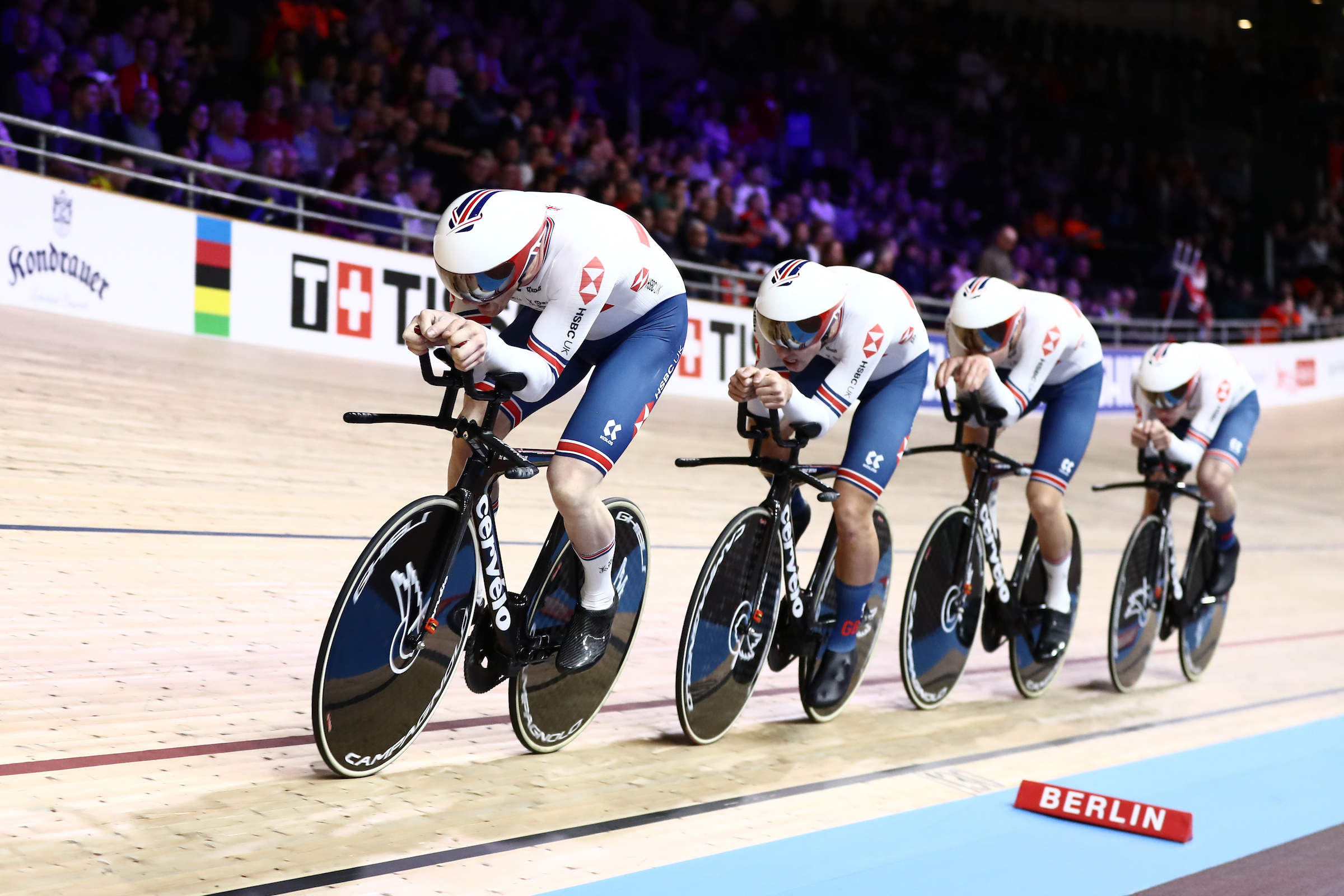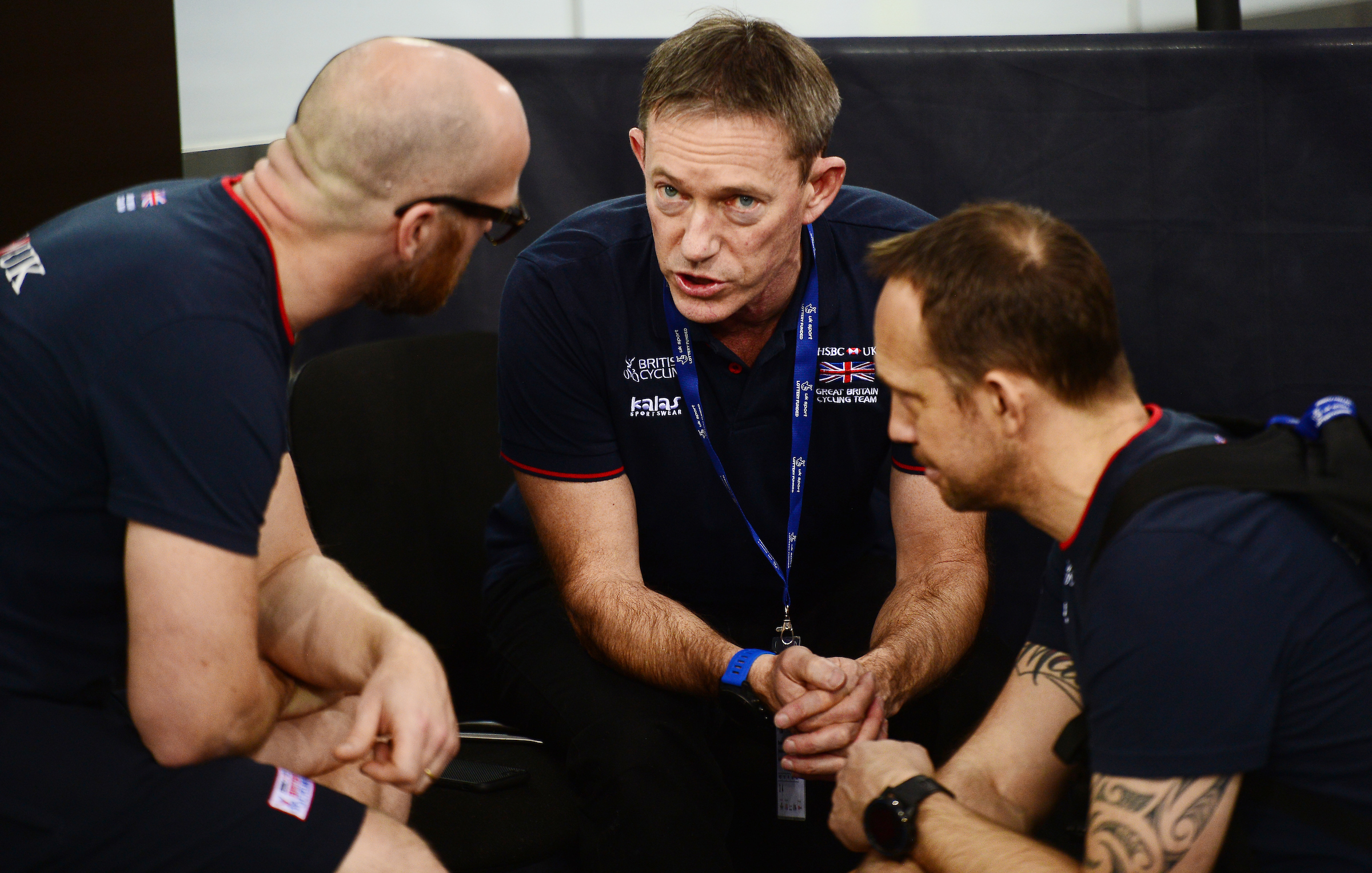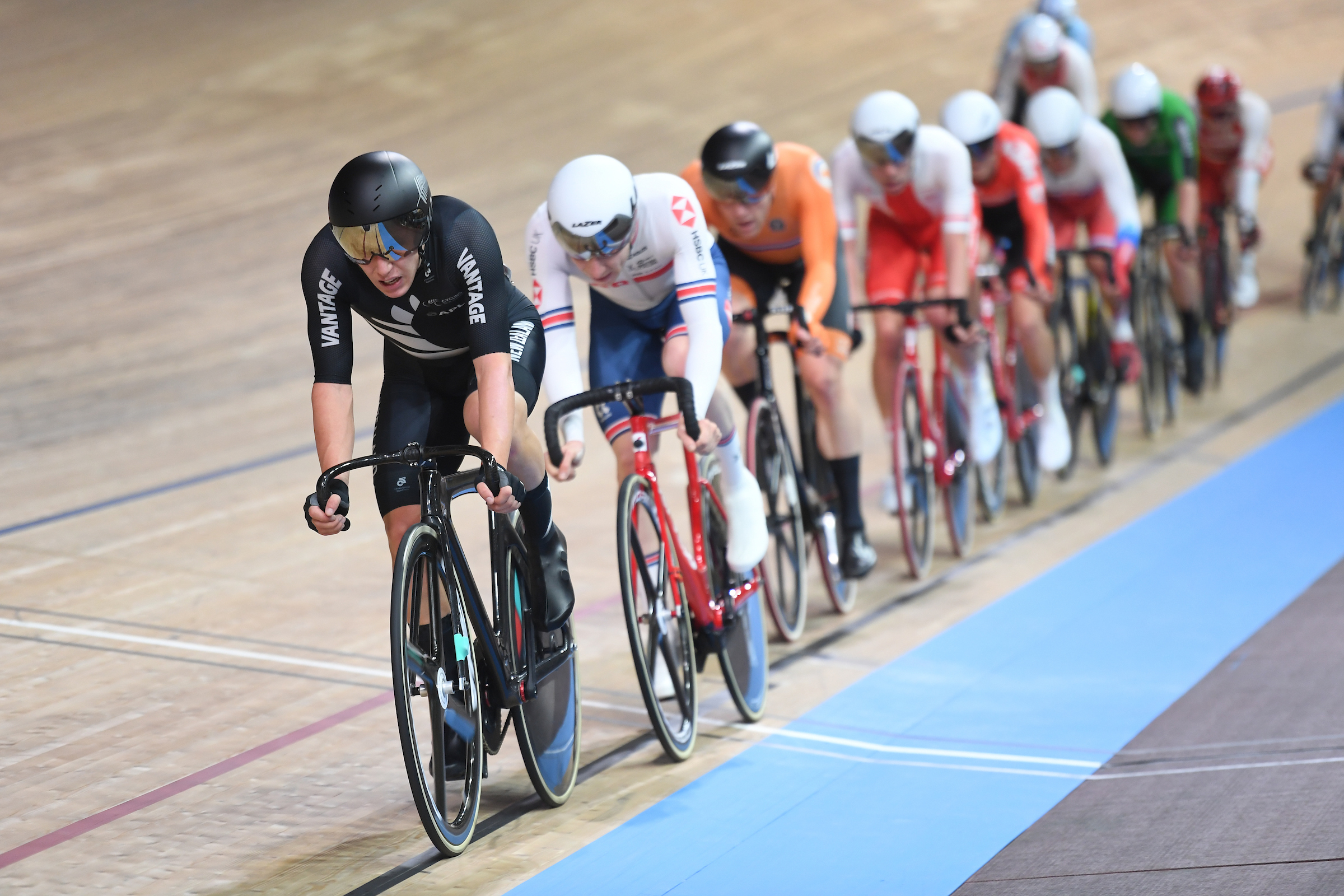British Cycling eyes strategic overhaul ahead of Tokyo Olympics
Performance director Stephen Park warns massive medal hauls are a thing of the past

The latest race content, interviews, features, reviews and expert buying guides, direct to your inbox!
You are now subscribed
Your newsletter sign-up was successful
British Cycling performance director Stephen Park has signalled BC may shift focus away from the blue riband team pursuit in the light of the team’s track World Championships struggles.
The men’s team pursuit squad did their best qualifying ride ever, but they still appeared off the pace finishing seventh in qualifying with a 3-50.341, while the Danish quartet lowered the world record three times climaxing with a 3-44.672 in the final.
Park hinted that this may mean British Cycling focuses it’s efforts on winning gold in bunch races rather than the team pursuit.
He said: “It’s not just about saying, ‘what do we do with team pursuit?’ We have to look at how many athletes can we take in men’s endurance, what events that we’ve got, and where are we best served to invest our efforts?
“Which riders and which skills are best required to be able to deliver the best possible medal outcome with the highest likelihood? So when we get back if we say, ‘Do you know what omnium is realistic medal opportunity, Madison is a good medal opportunity, team pursuit pffff. Crikey we think we’re a long way away’ the emphasis needs to change.”

That would be a significant departure for British Cycling, which since the introduction of funding from the National Lottery has always focused its efforts on the timed events. That has been a strategy born of the ability to control the performance in those events as they suffer much less from the vagaries of bunch races where luck can play a key role.
Park, however, argued that it was not a radical change. “Where there is similarity is putting emphasis on the events where we are most likely to be able to control our performance and increase the likelihood of delivering a medal… Yes the timed events that don’t involve other teams [amongst you] are more controllable than a bunch race but it might be that you think consistency wise that negates that circumstance and therefore the emphasis shifts,” he said.
The latest race content, interviews, features, reviews and expert buying guides, direct to your inbox!
The Berlin Track World Championships were British Cycling’s lowest medal haul immediately ahead of an Olympics since 1999. Though one of these was a silver for the women’s team pursuit quartet so it appears unlikely that BC will move focus away from that team.
The men’s team pursuit squad though hasn’t won the World title since 2018, which they were able to do with a time of 3-55.714 in the final, 11 seconds slower than the Danes went in Berlin.
Between 2018 and now the event has evolved substantially with bigger riders, pushing bigger gears and doing longer turns. When asked if the British team have the right type of athletes to meet the demands of team pursuiting in 2020 Park said: “We’re putting together the best athletes that we’ve got to deliver the performances in the best way we can with the athletes we’ve got available to us at the moment.”
He was also mindful that the technological advantage that the British squad has enjoyed at previous Olympics will be slimmer in Tokyo. He said that at previous Olympics he would expected other teams to have found 20-30 per cent of the equipment gains GB had, but that in Tokyo that was likely to be closer to 80-90 per cent, levelling the playing field substantially.
He added that other squads had some faster kit at the Worlds than GB but that it was right to not use their own Olympic kit to allow them to evaluate and benchmark the British athletes' performances.
He also said that the radical Hope and Lotus bikes the squad will use in Tokyo are not ready yet, they need around 40 and so far have just two.
However, Park said that there were reasons for optimism. The team pursuit team men had changed the balance of their training between speed and strength work and that their improved qualifying time was a signal that was working. But he added: “You could say, ‘It’s still five seconds away from a world record’ but still from where they were to where they need to be from our reference point, have we achieved those process goals? Then yes. We’re not a million miles away from a medal, but right now you’d have to say we’re a fair distance from a gold medal.”
British Cycling appointed Park as performance director from his previous role heading up British Sailing’s elite programme in December 2016. For much of his tenure since then he has been keen to manage expectations of Britain’s medal haul in Tokyo. It was no different in Berlin.
“I think the days of any nation winning 10-plus medals have probably gone. I don’t think that is a result of GB’s performances decreasing, I think that is a result of the worldwide competition increasing,” he said. He added that with the introduction of more BMX events and the rise of mountain biking Britain’s success on two wheels would likely be spread more broadly.
“I don’t think any country will win the same number of medals as GB won on the track in Rio,” Park said. “But I am confident that we have a significantly higher potential in the non-track events so I am confident we will hit our medal targets for UK Sport.”

Park said the road races and time trials in Tokyo should also present Britain with good medal opportunities. “I think the road race will be absolutely brutal. If it’s hot, which it could well be, it will be the hardest one-day event we have seen for sure. And therefore you could see the finish line up the final climb with five riders. You could see the situation where there are 10 people get to the finish line in total.”
Park said he expected it to suit the likes of the Yates brothers, or Geraint Thomas or Chris Froome “on their best days” but that a lot of that performance would depend on how they came out of their road season calendars.
Having trained as a journalist at Cardiff University I spent eight years working as a business journalist covering everything from social care, to construction to the legal profession and riding my bike at the weekends and evenings. When a friend told me Cycling Weekly was looking for a news editor, I didn't give myself much chance of landing the role, but I did and joined the publication in 2016. Since then I've covered Tours de France, World Championships, hour records, spring classics and races in the Middle East. On top of that, since becoming features editor in 2017 I've also been lucky enough to get myself sent to ride my bike for magazine pieces in Portugal and across the UK. They've all been fun but I have an enduring passion for covering the national track championships. It might not be the most glamorous but it's got a real community feeling to it.